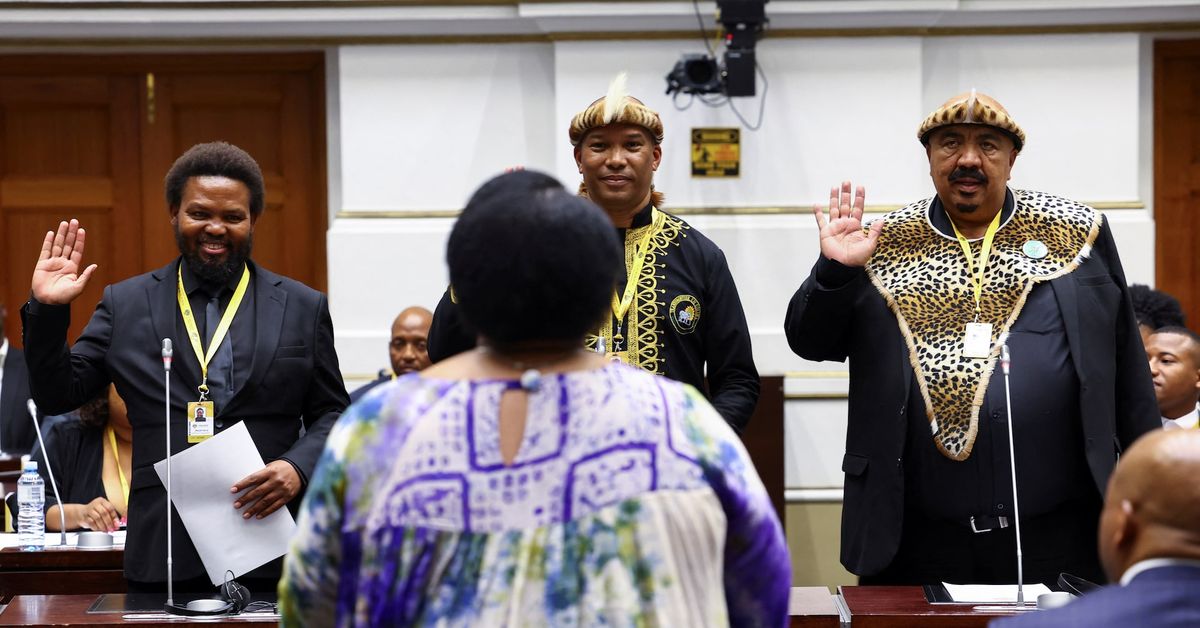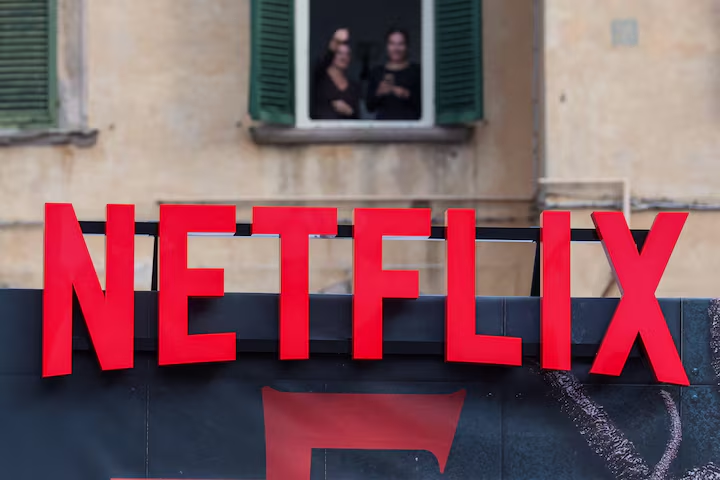
Members of South Africa’s uMkhonto we Sizwe (MK) party were sworn in as lawmakers in parliament on Tuesday after boycotting the first sitting of the National Assembly nearly two weeks ago.
MK lawmakers had stayed away on June 14 after filing a complaint at the country’s top court alleging vote-rigging in the May 29 election, which the court dismissed as without merit.
MK, the party of former South African president Jacob Zuma, exceeded opinion poll expectations by coming third in the election in which the African National Congress lost its parliamentary majority. MK has declined to join a government of national unity.
All of its 58 lawmakers, including Zuma’s daughter Duduzile Zuma-Sambudla, took the oath, allowing parliament’s lower house to start its business.
Among them were former finance minister Des van Rooyen, a surprise appointment by Zuma in 2015, who was dismissed after four days in favour of Pravin Gordhan when the rand currency collapsed.
Another prominent MK member – former Western Cape judge president John Hlophe, impeached by the previous parliament for misconduct, including for using his position to try to influence judges in a Zuma corruption case, was also sworn in.
MK is part of a broader coalition of smaller opposition parties that has lost traction as many gravitate towards the ANC and Democratic Alliance-led coalition government which has the collaboration of 10 parties so far.
Former ANC spokesman Zizi Kodwa was also sworn in on Tuesday, drawing criticism from the COSATU labour federation, which has supported the former ruling ANC party as part of a triumvirate alliance including the SA Communist Party since 1994.
“It sends a painfully worrying question to society on whether the ANC is committed to holding its public representatives accountable,” COSATU said in a statement.
The labour federation said the decision was “poorly thought through and ill-considered”. It added it undermined the ANC’s anti-corruption commitment championed by President Cyril Ramaphosa and that saw party members step aside when facing serious criminal charges.
Kodwa resigned from his position as minister of sport, arts and culture on June 5 due to criminal charges of corruption. He denies the allegations.




